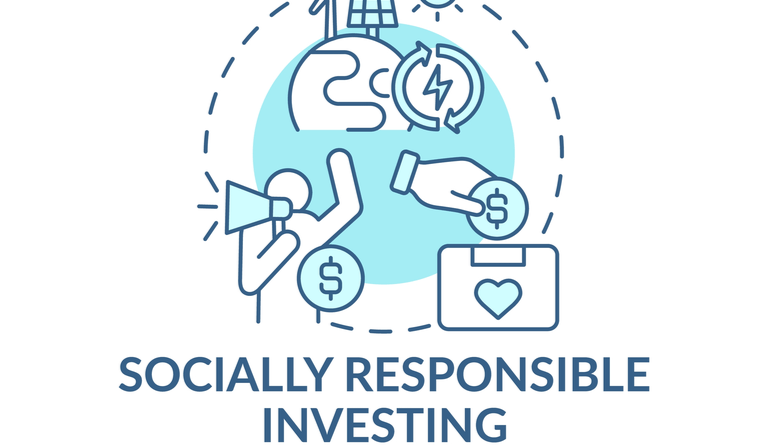Socially responsible investing, also known as SRI, refers to an investment strategy that will provide financial return while staying consistent with positive social impact and moral values. SRI is as straightforward as an investor who doesn’t want to invest in an industry, they find questionable morally.
For an SRI strategy, societal concerns and corporate responsibility are critical elements of making investment decisions. However, generally, SRI is a complete spectrum of investment activities. Therefore, sustainable investing refers to a broad approach to investing in companies that used to manage themselves in sustainable ways. These ways also include human rights and environmental protection.
However, SRI can also be based on moral values and avoided in some industries such as:
- Tobacco
- Alcohol
- Animal testing
- Weapons
- Gambling, and more.
( Also Read: What Is Fractional Share Investing? )
Special Considerations Regarding Socially Responsible Investment
SRI tends to mimic the social and political climate of the time. So, that’s a critical risk for investors to understand. It is because if an investment is based on social values. Then it can suffer if the values fall among investors.
Therefore, investment professionals often consider SRI through Environmental, social, and governance lens as factors for investing. This approach also focuses on the management practices of the company. Also, on whether they tend towards community improvement and sustainability.
However, there is evidence that focusing on this investment approach can offer improved returns. At the same time, there is no successful evidence for focusing on social values only.
Even more, as the awareness has increased regarding climate change and global warming in recent years. Therefore, SRI has trended towards the companies that impact the environment positively by investing in clean energy solutions or reducing their carbon emissions.
Historical Overview of Socially Responsible Investment
The history of sustainable investment started with Quakers. Quakers were a group of individuals; they all were the Religious Society of Friends part in the 1700s. At that time, these individuals refused to invest in the slave trade or sell or buy a human business.
Besides that, John Wesley was also an important proponent of socially responsible investment. Wesley was a man of the cloth. According to him, making money at the expense of someone else’s welfare is a sin. He also advised his congregants to avoid supporting industries utilizing toxic materials and participating in gambling.
For a longer period, responsible investors avoided investing in the sin industries such as gambling, liquor, and tobacco. However, in the 1960s, the trend of SRI evolved. Due to which investors started investing in projects that also fostered civil rights.
- However, the protest disinvestment of the 1980s started in South Africa was a good case in point.
- During that, companies and investors started withdrawing their investments from South Africa. It happened because of the apartheid policy that discriminated against certain races.
- Overall, socially responsible investment started as a simple activity in the 1700s. However, it evolved immensely.
Now it has become a mainstream practice. In fact, it has become a concept growing in popularity. It is because both corporations and individuals are embracing it continuously.
Types of Socially Responsible Investments
When it comes to socially responsible investment, you must take different types of SRI into account. There exist different types of SRI you must know in this regard.
So, here we go:
-
Mutual Funds and ETFs (Exchange Traded Funds)
Multiple ETFs and mutual funds adhere to the ESG criteria. However, if an investor wants to invest in socially responsible investment from these two funds. Then visiting the SIF website can be helpful in this regard. It is because the website outlines more than 100 socially responsible mutual funds. Even more, investors can also find socially responsible exchange-traded funds for investment in this regard.
-
Microfinance
Microfinance is another effective way of making socially sound investments for individuals. The strategy includes offering small loans or microloans for startups to turn their idea into running a business. They can also have a look at the businesses that offer financial assistance in developing countries.
-
Community investments
Community investment is a type of socially responsible investment opportunity that allows an investor to put their money into beneficial community projects directly. Contributing to the CDFIs (community development financial institutions) is an easy and efficient way to make such investments.
Tips To Make Socially Responsible Investments More Effectively.
As we have seen, socially responsible investments encompass different types of investment options. However, the similarity among all of them is that they have a positive impact on society. Even more, at present, investors focus on three factors mainly while making a socially responsible investment. These include corporate governance, social and environmental impact.
However, when it comes to making a responsible investment, then there are different ways to achieve this successfully. Here we have enlisted some of the most effective ones to help you better in this regard.
So, here we go:
-
Screen companies with negative practices
This tip involves the process of screening practices, services, products, and values of a company before making an investment. Suppose you discover that the company is creating potentially harmful items. If the company has unethical values and practices in place, then the investor shouldn’t put the money here.
-
Invest in a company with a positive profile
However, if the practices, services, and products of the company are positive. For example, if the company cares about the environment in actuality. Or they are using green energy in their manufacturing process. Or anything else just like that, then this can be a company you can collaborate with.
Final Thought
Socially responsible investment is an approach of investing money in funds and companies having a positive social impact. This investment approach has been growing in popularity in recent years. Socially responsible investments exist in different types. So, you can easily choose the option you find better for your investment easily.
Even more, socially responsible investors have to understand that SRI is still an investment. So, they must weigh the return potential into their investment decisions.








